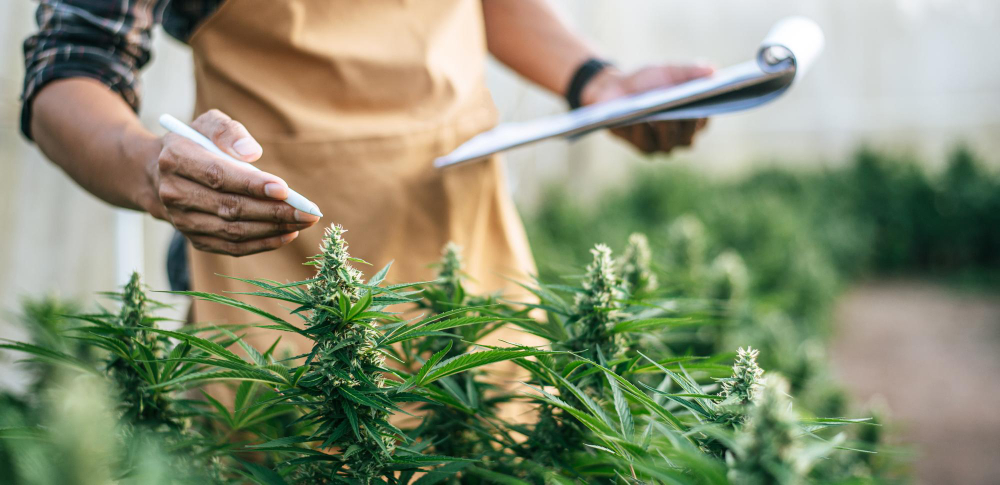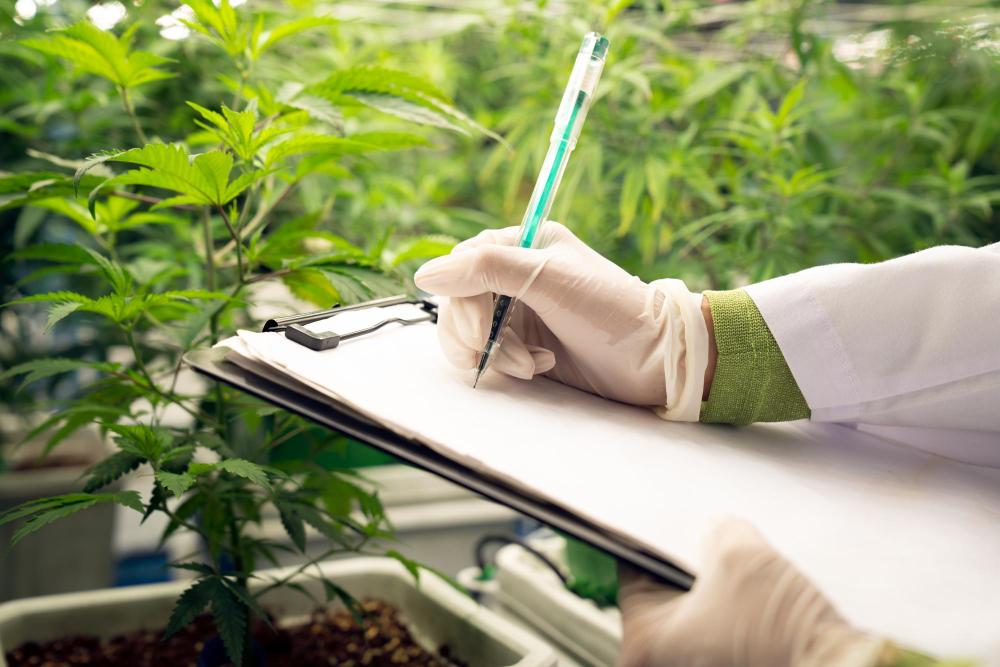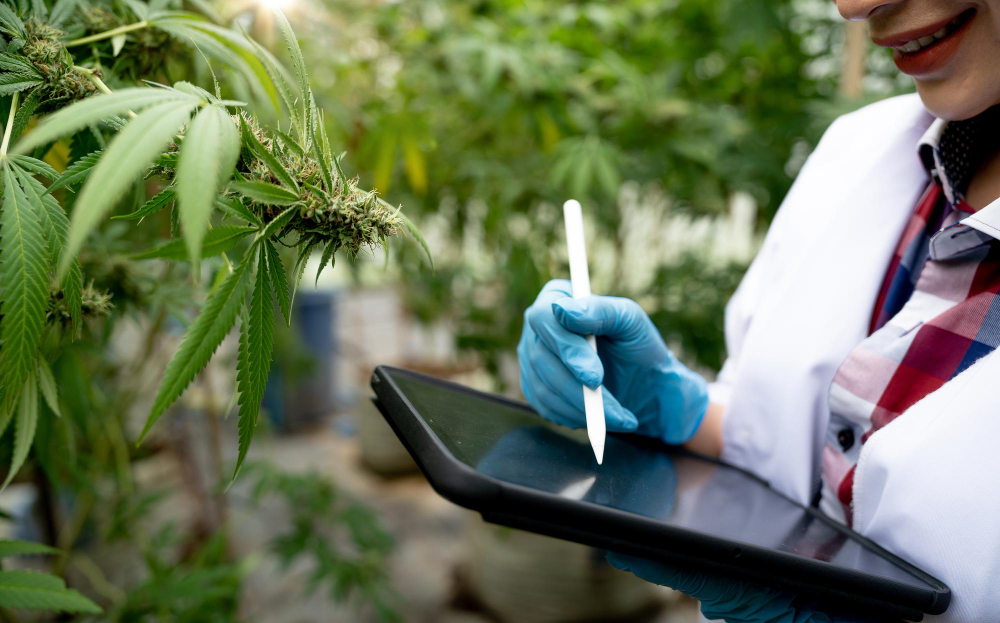In the rapidly evolving agricultural industry, obtaining the proper cultivation licenses is a critical step for entrepreneurs looking to optimize their operations. Agropharm team specializes in cannabis licensing consulting, helping businesses navigate the complexities of obtaining the right cultivation licenses for high-yield crops. This guide will walk you through the different types of cultivation licenses available, the key requirements, and how to avoid common pitfalls when applying for them, ensuring your venture is set up for success.
Understanding cultivation licenses
Considering that regulations might significantly change between countries, or even in the same country, cultivation licenses are essential for anyone looking to engage in the commercial cultivation of crops, particularly in industries like agriculture and pharmaceuticals. These licenses ensure that businesses operate within the bounds of the law and meet the regulatory standards set by local and national authorities. Whether you’re an agricultural producer, a pharmaceutical company, or an investor exploring the cultivation of high-yield crops, obtaining the correct license is a critical first step to success.
For businesses looking to enter regulated sectors, such as those involving crops with specialized uses, the licensing process can be complex. This is where having expert guidance becomes invaluable. The right cultivation license allows entrepreneurs to legally grow crops under specific conditions, ensuring both product quality and safety.
However, each license type comes with its own set of requirements and regulatory criteria. Understanding these distinctions is key to ensuring you’re not only compliant but also setting up your operation for long-term profitability.
In this guide, we’ll explore the various types of cultivation licenses, their specific requirements, and the steps you need to take to apply for them. By understanding the licenses you need and avoiding common mistakes, you’ll be better equipped to navigate the regulatory landscape with confidence.
Cultivation license types
When it comes to cultivating high-yield crops, there isn’t a one-size-fits-all approach to licensing. Different cultivation activities require different types of licenses, each with its own set of specific requirements. Understanding these license types is essential for ensuring you apply for the right one that matches your cultivation goals.
Agricultural cultivation license
The most common and widely applicable license is the Agricultural Cultivation License. This type of license is essential for any business looking to engage in large-scale agricultural production. Whether you’re cultivating crops for food, raw materials, or other industrial uses, this license ensures that your operation meets environmental and safety regulations.
Key considerations:
- Must comply with general agricultural practices and standards.
- Requires regular inspections of growing facilities.
- Includes safety protocols for crop production and handling.
This license is ideal for businesses that want to engage in standard agricultural activities, ensuring they are legally authorized to cultivate and distribute their products.
Research and development (R&D) cultivation license
An R&D Cultivation License is intended for businesses or institutions involved in the development and testing of new crop varieties, cultivation techniques, or agricultural technologies. This license is often sought by companies in the biotech or agricultural technology sectors.
Key considerations:
- Typically granted to organizations focusing on innovation, like testing new crop varieties or exploring new agricultural methods.
- Requires stringent documentation and protocols around the R&D process.
- Focuses on ensuring the quality and safety of experiments without risking the larger agricultural supply chain.
An R&D Cultivation License allows your business to test and innovate, pushing the boundaries of what’s possible in agricultural science while maintaining full legal compliance.
Pharmaceutical cultivation license
A Pharmaceutical Cultivation License is required for businesses growing crops specifically intended for pharmaceutical use. This could include raw materials for the development of medicinal products, such as tinctures or extracts. These licenses are highly regulated, given the direct impact these products have on public health.
Key considerations:
- Must comply with pharmaceutical industry regulations and standards.
- Requires facilities that meet high standards for cleanliness, safety, and security.
- Often requires compliance with specific national and international drug regulatory bodies.
If you’re looking to enter the pharmaceutical industry or engage in large-scale production of medicinal crops, a Pharmaceutical Cultivation License is critical. It ensures that your crops meet the strict quality standards needed for consumer safety.

Key requirements for obtaining a cultivation license
Securing a cultivation license for cannabis, like any regulated industry, requires meeting a variety of legal, environmental, and operational standards. The regulatory landscape can be complex, but with the right guidance, the process can be streamlined.
Whether you’re a new investor, agricultural producer, or pharmaceutical company, understanding the key requirements for obtaining a cultivation license will help you avoid common mistakes and move forward with confidence.
1. Legal documentation and business registration
Before applying for any cultivation license, businesses must be properly registered and compliant with local laws. This includes obtaining necessary business licenses and tax registrations. Regulatory authorities will require proof that your business is legally structured and meets all jurisdictional requirements (debida diligencia).
What you’ll need:
- A valid business registration or incorporation document.
- Proof of tax compliance, including identification numbers.
- Criminal background checks for key personnel, ensuring that no individuals involved have been convicted of serious crimes.
Having your legal documentation in order is one of the first steps in demonstrating your credibility and commitment to compliance.
2. Security and Environmental Standards
Security and environmental standards are vital components when applying for a cannabis cultivation license. Cultivation facilities must adhere to strict guidelines designed to ensure the safety and integrity of both the product and the surrounding environment.
Key security requirements:
- Implementation of security systems such as surveillance cameras, alarm systems, and controlled access to the facility.
- A secure perimeter to prevent unauthorized access.
- Comprehensive monitoring of plant health, production, and storage.
Environmental considerations:
- The facility must meet environmental regulations, including waste management, water usage, and energy efficiency.
- Implementation of energy-efficient systems that minimize environmental impact, especially important for large-scale operations.
A well-secured and environmentally compliant facility not only helps you meet regulatory standards but also builds trust with regulators and investors alike.
3. Detailed facility plans and site inspections
Cannabis cultivation facilities must submit detailed plans outlining the layout of their operations. These floor plans should include the design of growing areas, working areas, storage, security systems and any other crucial information, as well as adherence to health and safety guidelines.
What you’ll need:
- Architectural plans of the cultivation facility.
- Compliance with zoning laws and local building codes.
- Validation and facility inspections by regulatory authorities to verify adherence to submitted plans.
This step ensures that the facility is not only compliant with legal and regulatory standards but also optimized for efficient operations.
4. Quality control and testing procedures
One of the most important aspects of cannabis cultivation is maintaining product quality and safety. A cannabis cultivation license requires the implementation of strict quality control procedures to ensure that the final product meets all industry standards.
Quality control measures:
- Establishment of a robust quality control team to monitor plant health and prevent contamination.
- Regular testing of the soil, water, and plants to ensure they are free from pesticides, pathogens, or other harmful substances.
- Maintaining records of all testing, which must be available for inspection.
Testing and quality control not only ensure compliance but also improve product consistency, which is essential for success in the cannabis market.
5. Financial documentation and proof of investment
Investors and business owners applying for a cultivation license must provide detailed financial documentation to prove that they have the necessary resources to support their operation. This includes capital investment, expected revenue, and operating costs.
What you’ll need:
- A comprehensive business plan outlining your financial projections and strategy.
- Proof of financial stability or investment, such as bank statements or investor backing.
- Evidence of funding to cover facility setup, staff salaries, and operational expenses.
Having a clear and realistic financial plan shows regulatory authorities that you can sustain your business while meeting all operational requirements.
Common mistakes to avoid when choosing or applying for a cultivation license
When applying for a cultivation license, entrepreneurs often make critical mistakes that can delay or even derail their project. One common mistake is incomplete or incorrect paperwork. Missing or inaccurate information can lead to rejection or delays in the application process, so it’s essential to ensure all documents are accurate and complete.
Another mistake is misunderstanding the specific requirements for the type of license needed. Different cultivation activities, whether agricultural, pharmaceutical, or R&D, require different licenses. Failing to apply for the correct one can result in compliance issues down the road.
Underestimating costs or timelines is another frequent pitfall. Licensing processes can be lengthy and costly, so proper planning and budgeting are key to avoid unexpected hurdles.
By avoiding these mistakes and partnering with experts like Agropharm, entrepreneurs can navigate the licensing process efficiently and successfully.

The role of cannabis licensing consulting services
Navigating the complexities of cannabis cultivation licenses can be daunting, especially for new entrepreneurs. This is where cannabis licensing consulting services come in. Companies like Agropharm offer invaluable support to ensure businesses comply with all regulatory requirements and streamline the application process.
Consulting services begin with understanding the specific needs of the business, whether it’s for large-scale agricultural cultivation or a specialized research facility. Experienced consultants guide clients through the entire licensing journey, from initial paperwork to understanding zoning laws and facility setup. They help identify the appropriate cultivation license type based on the business’s goals, ensuring that no critical steps are missed.
Consultants also provide insights into compliance standards and best practices for security, environmental regulations, and quality control, reducing the risk of costly mistakes. Their expertise helps businesses meet both local and international standards, increasing the chances of a successful application.
Additionally, ongoing support from consultants ensures that businesses remain compliant with any updates to regulations. Whether you’re new to the cannabis industry or expanding your existing operations, cannabis licensing consulting services can help ensure that your business is positioned for success.
Securing the right cultivation license is crucial for your business’s success. Let Agropharm’s expertise guide you through the process. Contact us for personalized cannabis licensing consulting and ensure your project is set up for long-term success.
